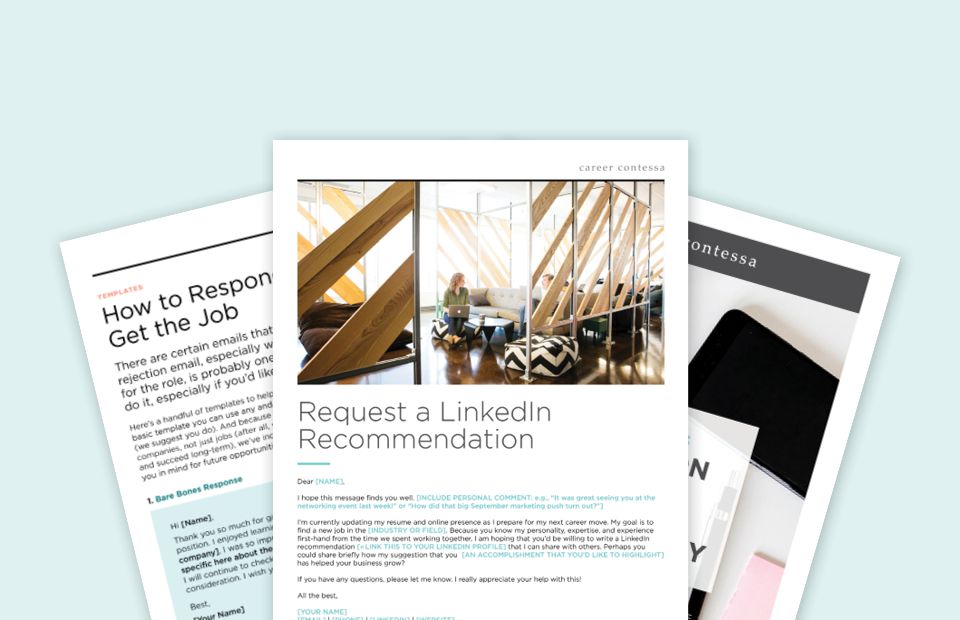Getting into a young startup in its early days brings great perks—personal growth opportunities, the chance to acquire new skills rapidly, and of course, a chance to make a lot of money if the company creates that famed hockey stick growth.
Once you decide you’re ready to explore a role at a startup, landing a position is another issue. Speaking from personal experience as part of a quickly growing startup, I’ve spent a lot of time recruiting and reviewing dozens of candidates for a variety of roles. Some big issues and common mistakes come up often. After reading hundreds of resumes and cover letters, here are some things to do if you want to make a seriously positive impression with your own application.

Respond to the job posting with extreme specificity
No one is impressed by the job hunting strategy of “spray and pray,” i.e. blindly sending your resume to every open job. It’s pretty rude when you think about it—it wastes the manager’s time to review inappropriate applications. It also wastes your time as an applicant to send applications for job posts you don’t care enough about to read thoroughly. A vague application sends a clear message to the recruiter that you’re sloppy, and maybe even desperate. Just don’t do it.
Part of being specific is remembering that startups often have criteria in mind that is hard to quantify, and more related to your approach to work than to your work experience. For example, most startups will be looking for applicants who exhibit a strong passion for the industry or mission of the startup, an ability to see the larger picture, and an ownership mentality.
Since early-stage startups are usually trying to achieve huge goals with a small team, they want new hires to dive in, learn fast, see things that need doing, and then take extreme ownership. If you’ve never worked at a startup before, but you have had a chance to initiate an innovative project at your company where you owned process, execution and reporting from start to finish, you can bet your recruiter will be interested in that skill set. You might want to discuss your ownership mentality in your interview, too.
By highlighting in your resume and cover letter some specific ways that you demonstrated a combination of creativity, problem-solving skills, and ownership—and how those relate to the job posting—you can make it easy for them to choose you.
Show your enthusiasm
If I’m building a company from scratch, I want to gather a smart team of highly engaged professionals. I want to work with people who will challenge me and help the company grow. I want to find new hires who understand and care about a larger mission. I don’t want to work with people who just want to get the minimum done and leave. When I get an application that clearly communicates a long-term dedication for solving the kinds of problems we think about every day, I get excited about that candidate.
If you’re applying for a job that seems like a perfect fit for you—that uses your core skills, that seems like a job you’d learn from, with a team you can’t wait to meet—you should definitely say so, and spell out specifically why those things are true.
You can also demonstrate your tenacity and drive by figuring out who the hiring manager is, then sending them a personal email or LinkedIn message with some relevant comments or questions. (That means your messages should provide some value and demonstrate your skills in some way, not beg for a job.) Not everyone agrees with this direct approach, but if you keep your messages short, polite, and insightful, you have a good chance of being noticed and receiving a positive response.

…But please don’t be a stalker
I love a thoughtful follow-up email a few days after you submitted your application. I especially like it if you send me something interesting, like a writing sample or piece of supporting evidence for why you’d be so great in the role. That lets me know you really want this job, not just any job.
However, if you show up at the office without an appointment, call repeatedly to “check on things” or try to add everyone in the company on social media before you’ve met any of them in person, you’re going too far. Behavior like this shows a lack of boundaries, causes your recruiter or hiring manager the pain of wasted time, and is a good way to end up in the “reject” pile.
Don’t insult the people you’re trying to impress
Stuff like this makes an applicant sound arrogant, condescending and maybe even delusional. Nobody appreciates negging.
Consider the situation from the perspective of the startup team. They’re probably a small group giving their maximum effort every day to achieve something they consider huge, maybe even world-changing, or they wouldn’t be doing it! If you want in, you should show them that you have that mindset, too.

Write and speak like a human
When was the last time you said to a colleague, “Dear Sir or Madam, it is with great pleasure that I inquire if your previous weekend was fantastic?” I hope the answer is never, but that’s how cover letters often sound.
It’s such a shame that so many people forget how to act like normal people when sending job applications! I’ve seen far too many cover letters packed with complicated words, convoluted phrases and weirdly formal business jargon. Job seekers may believe this type of writing makes them look sophisticated or smart, but usually, it has the opposite effect. This is especially true in the more informal world of startups. Writing like a robot when communicating with a startup recruiter is a huge mistake.
Why? It’s a mistake to pack your application with jargon because, when you stop and think about it, doing so is counter to your purpose. Your cover letter is an introduction to you as an awesome, capable and super-flexible person! If it’s hard to understand or sounds like it was generated by a random-buzzword-generator, it won’t do a good job of giving the reviewer a sense of your capabilities, style, or ability to relate to others.
On the flip side, I’ve received applications that are overly familiar or casual in their cover letters or introductions. While it’s true that early-stage startups are usually much more casual than giant corporations, hiring is still a formal process with tremendous impact, and typos or tons of emojis are inappropriate.
From the point of view of the startup, the smaller the team, the greater the social impact of each new team member. That means finding a personality fit is incredibly important. To address this concern, your communications should strive for a balance between being respectful and professional, and showing your genuine personality. More than anything else, the cover letter is useful for showing off your ability to communicate clearly about the value you can add. Clear communication is a valuable skill for any role and highly sought-after skill in most startups.
How do you know if you’re nailing this—or not? Try this experiment: Before you send it, read your cover letter out loud. Does it sound like you?
If it feels stuffy or unnatural, or immature and too familiar, it probably is. You can keep it on the formal side, you don’t need to tell jokes, but removing slang, removing extra words (“the fact that…” or “in order to…” are good examples), cliché phrases, and business buzzwords (bye bye, “dynamic synergies”) will greatly improve most pieces of writing—not just job applications.
Pro tip: If you’re serious about improving your writing, check out our thoughts on words to drop from your emails ASAP, and this mega-list of 297 words and phrases that rob your writing of power.

Want to find more support for your startup job hunt?
Thankfully, there has been a recent explosion of resources that cater especially to people interested in exploring startup jobs. Here are a few starting points I recommend for women who are looking to learn more about landing a startup job, evaluating offers, and staying motivated through it all:
- AngelList: If you want to explore startup roles, this should be your first stop. Wondering where to start? How about this roundup of 20 female-founded startups!
- CrunchBase: CrunchBase is a useful site for discovering startups, industry information, funding details, and executive profiles. Need some ideas for ways to use CrunchBase in your job hunt? If you’re interested in a certain company, you can find out how much funding they’ve received and top executives who work there. If you’ve got a passion for a certain industry, dive into Crunchbase and discover startups in that space.
- Tech Ladies: Tech Ladies is a community and job board for women in tech, or women looking to get into tech. A supportive community and good source of startup job postings and information.
- Ladies Get Paid: LGP is a community dedicated to helping women share resources and advice about workplace issues, including job hunting and negotiating offers. While this community isn’t limited to startups, startup employees and job hunters are well-represented. I’ve found this is an incredible and helpful group and highly recommend joining their Slack group.
- Career Contessa: Not to toot our own horn too much, but Career Contessa is a major destination for women seeking their next startup job. Check our job board and filter by technology opportunities.
Want to get better at this whole hiring/applying thing?
Here are a few starting points I recommend for acing your job search or improving your recruiting efforts, and staying motivated through it all:
- Human Workplace by Liz Ryan—Ryan is smart, insightful and really gets what a “human” job search should and could be.
- The Buzz on HR by Sarah Morgan—I just started digging into the archives of this blog but it’s a good one, covering HR, management, and leadership.
- Ask A Manager by Alison Green—If you ever wondered what your boss was thinking - or maybe wondered how to be a better boss - this blog is helpful. Lots of posts discuss hiring and cover letters in particular. Try: Ask A Manager on Hiring or Ask A Manager on Cover Letters










